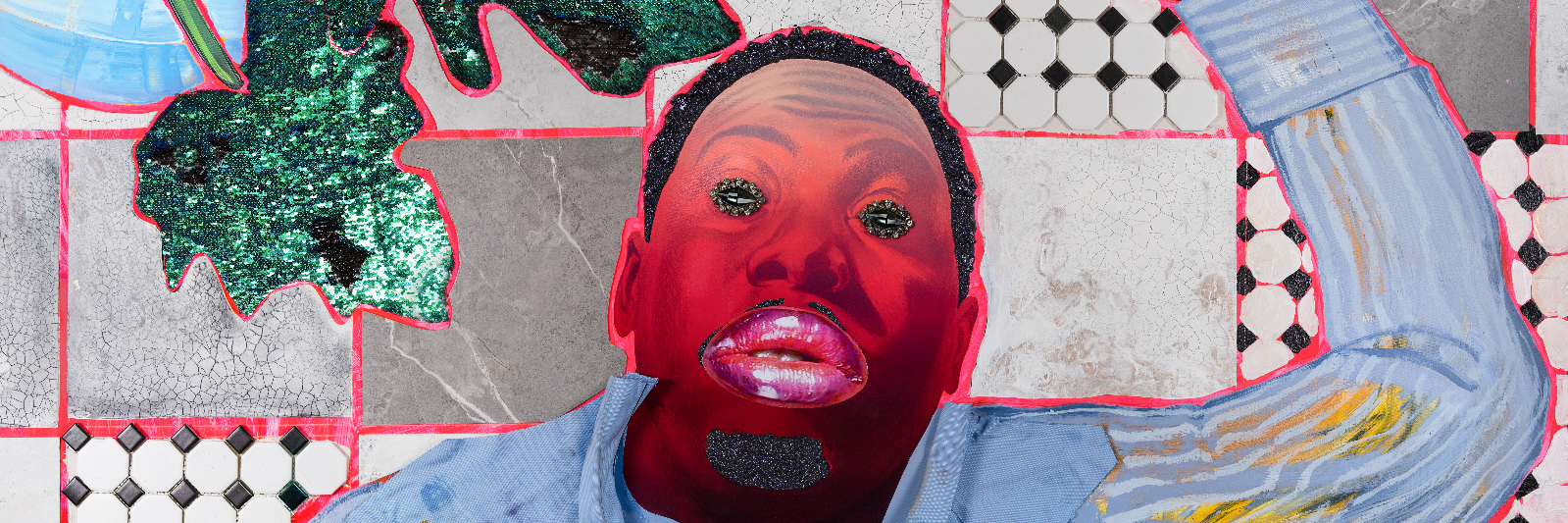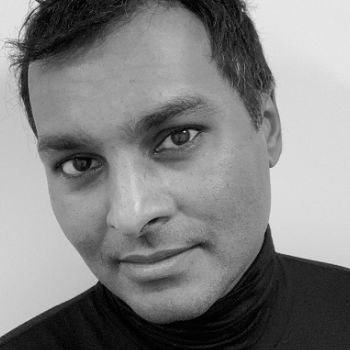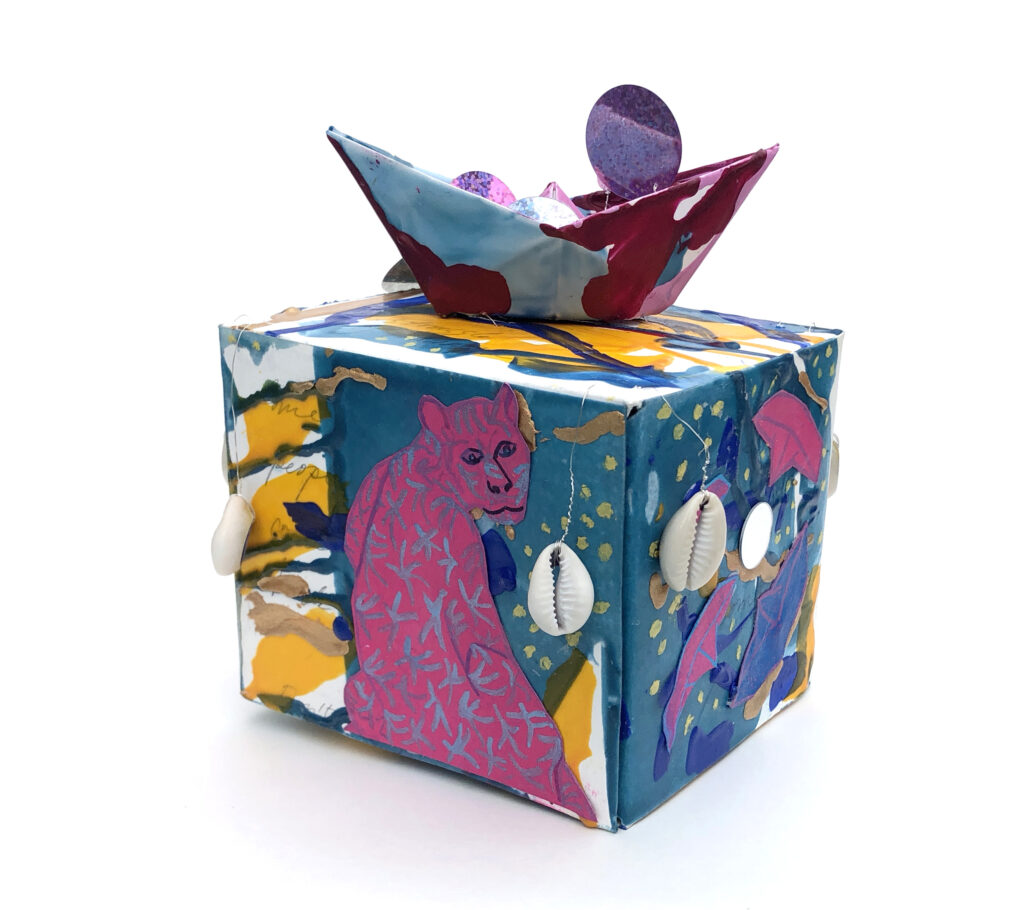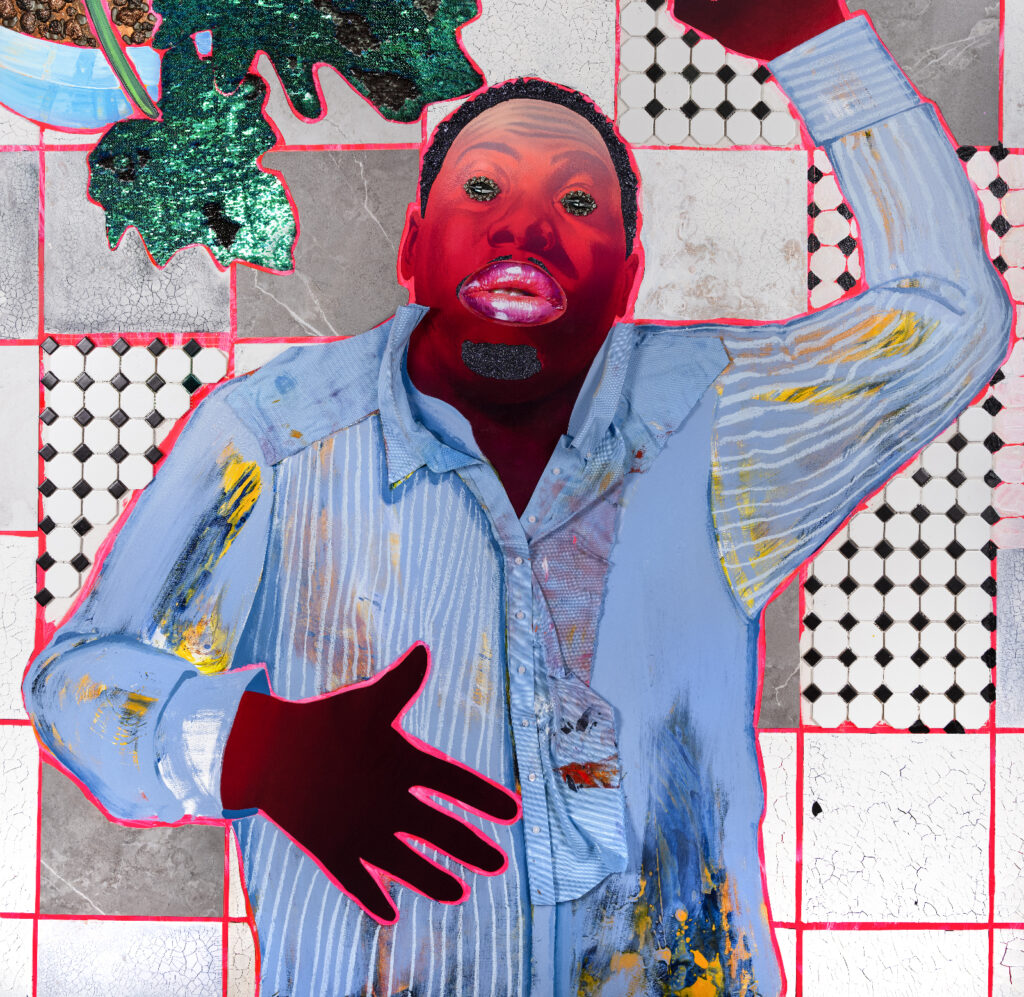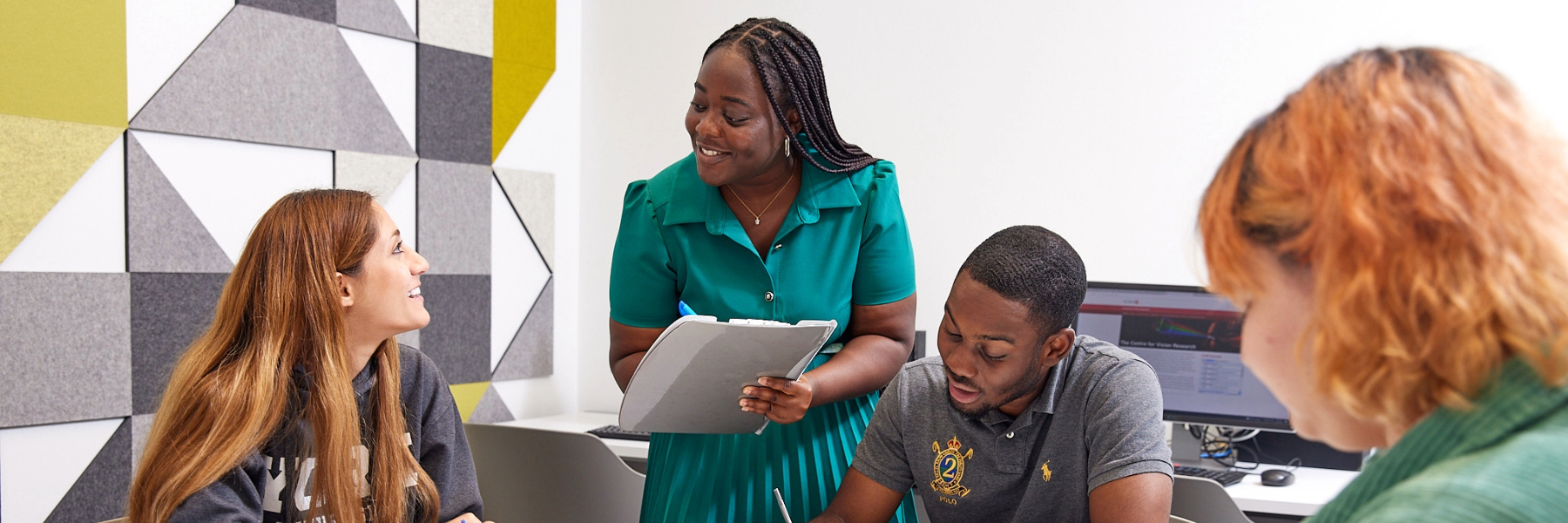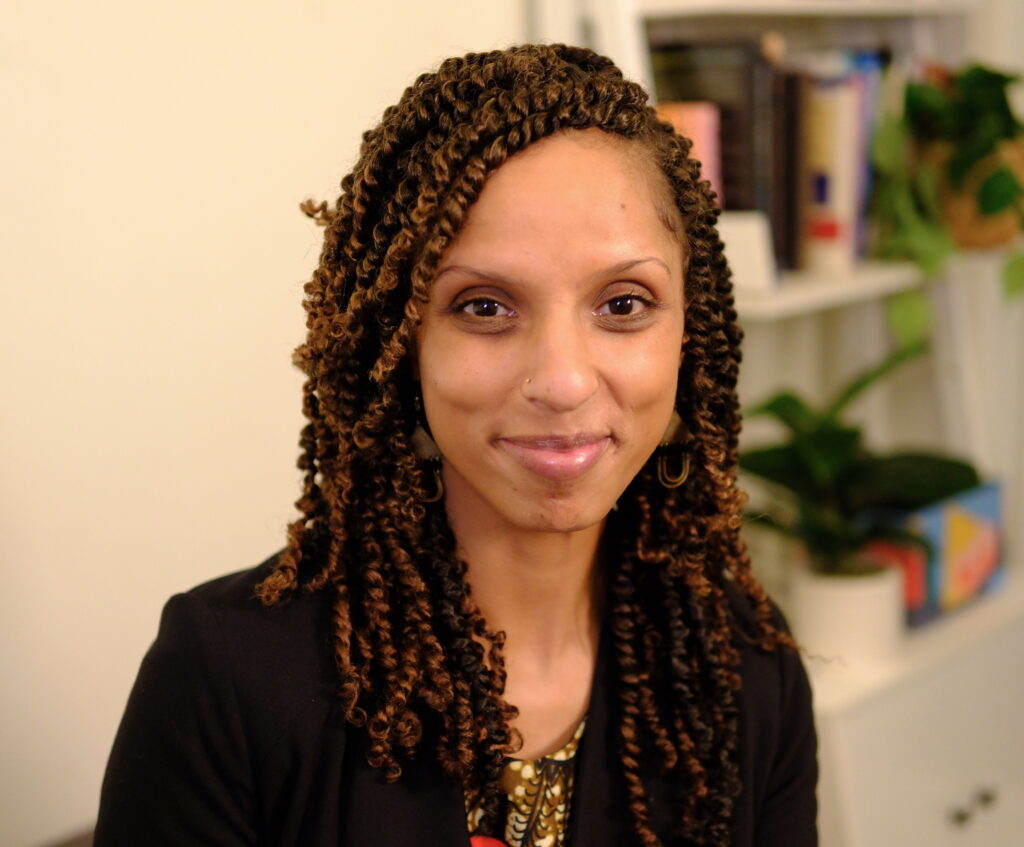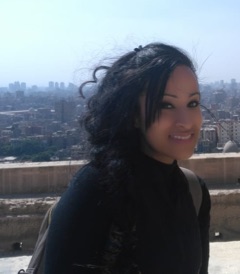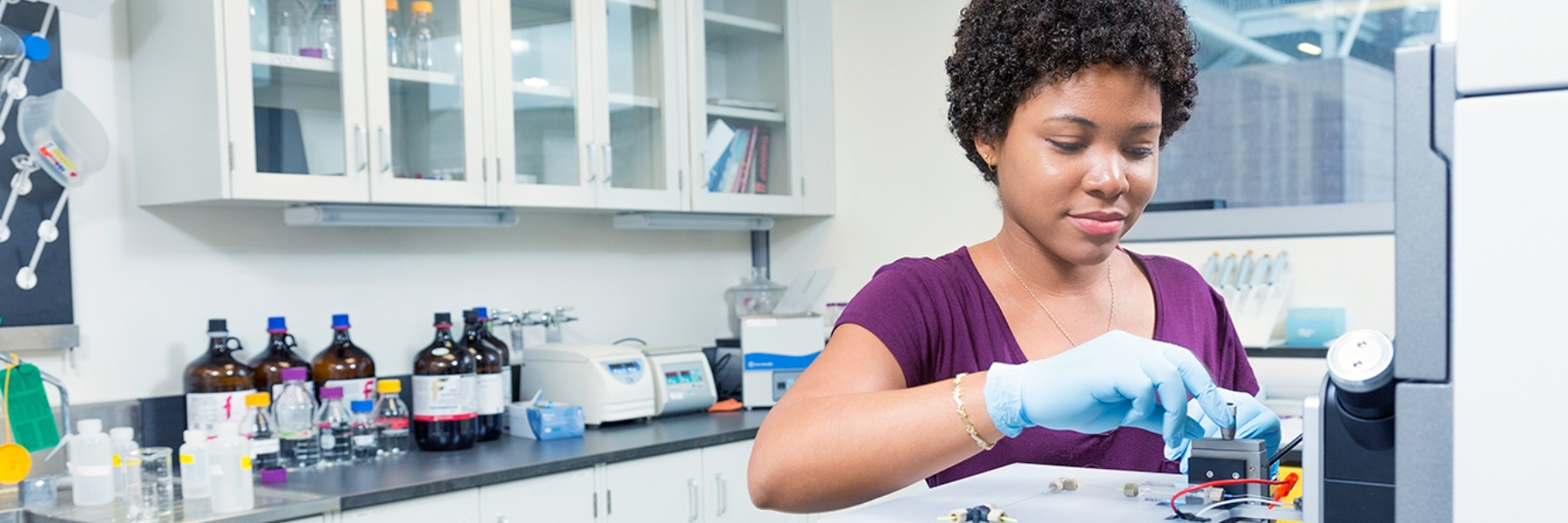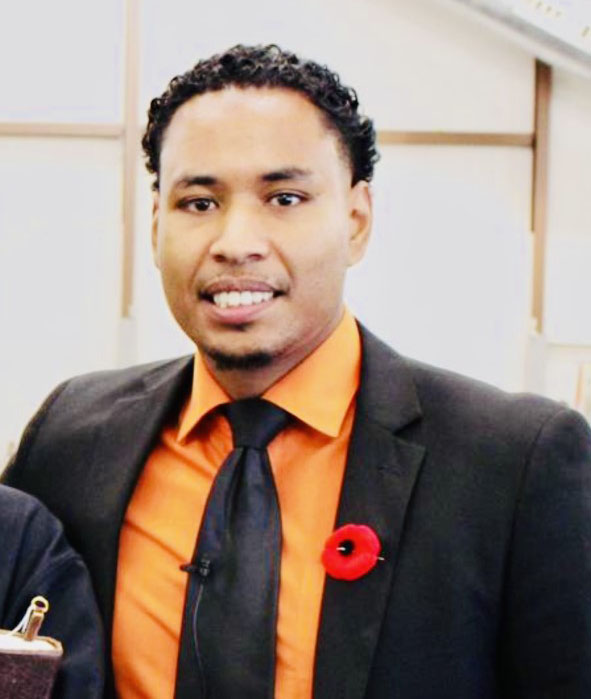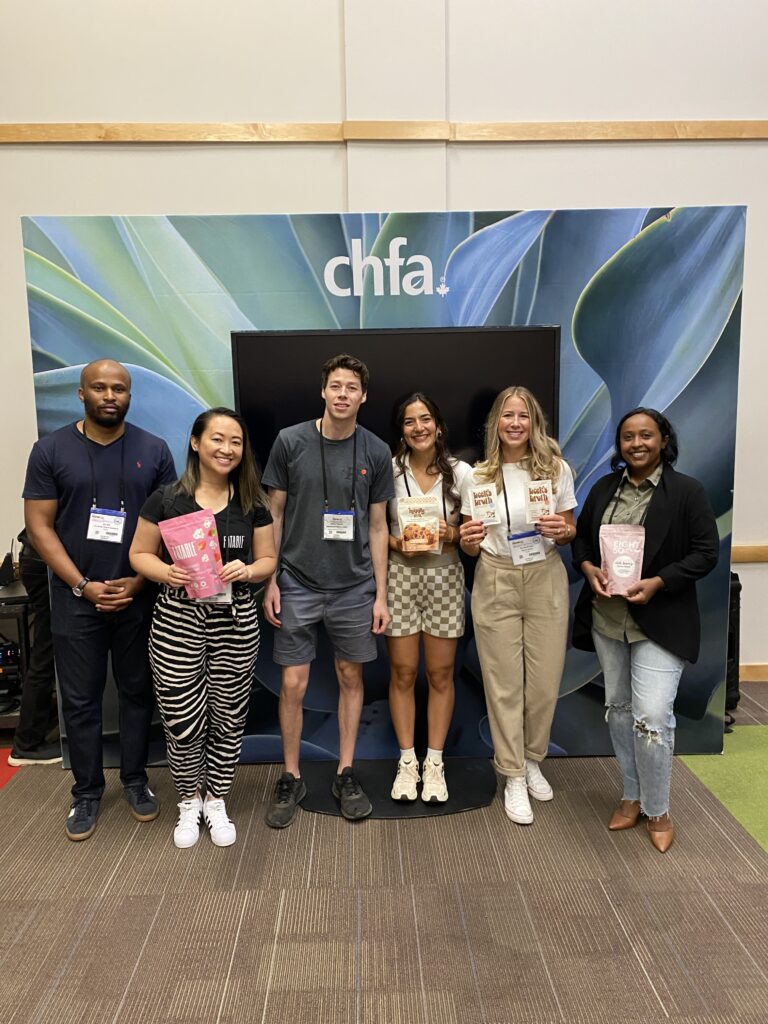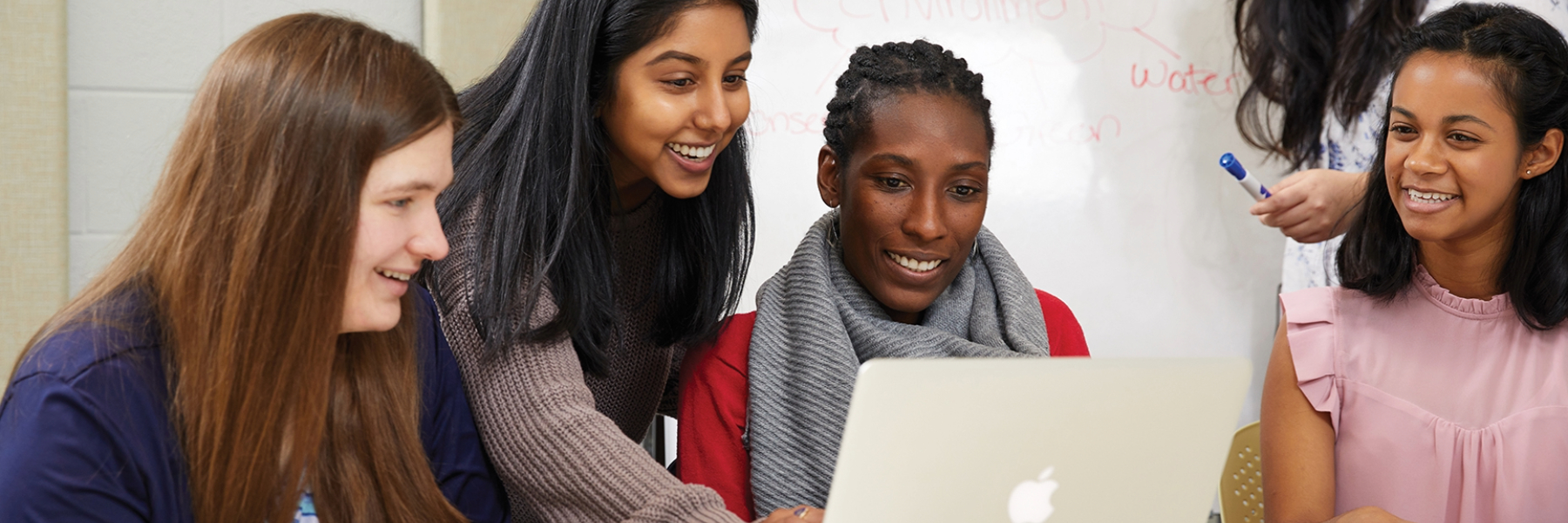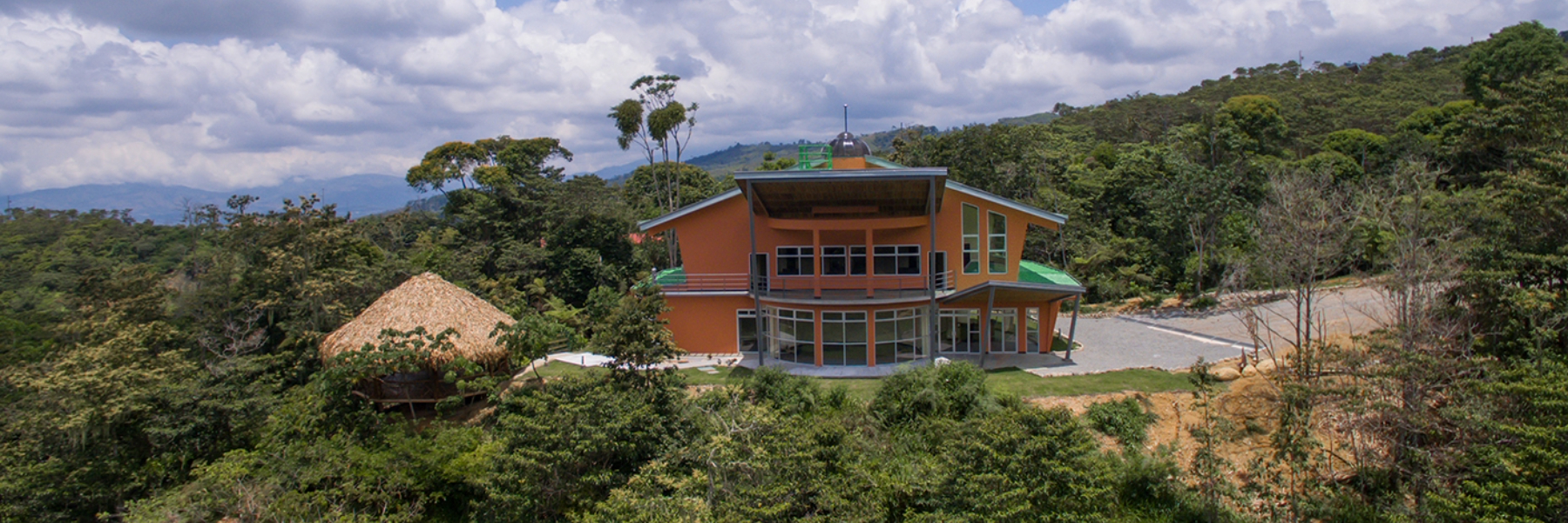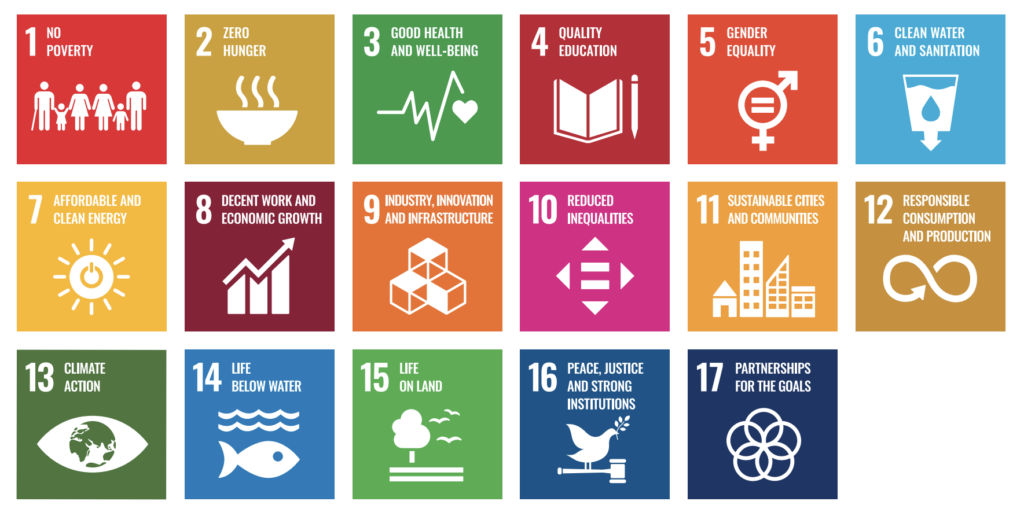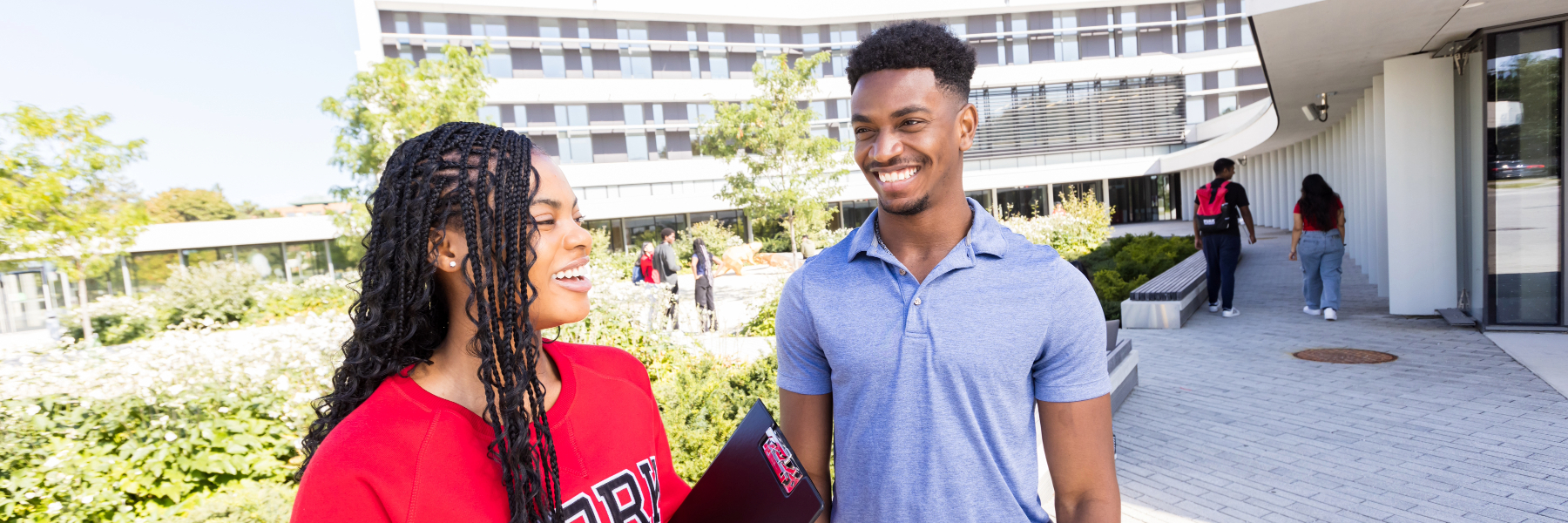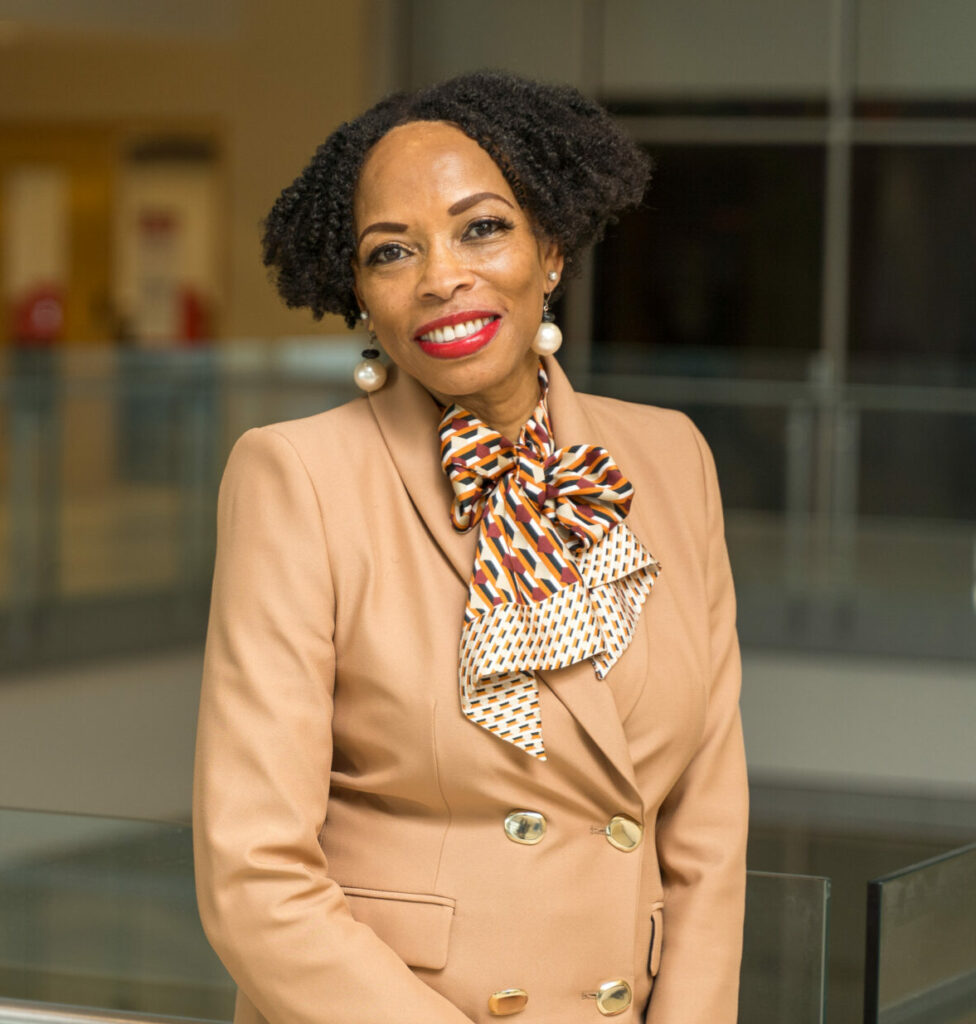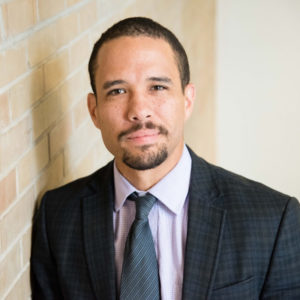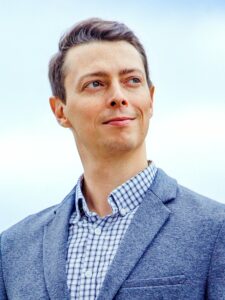By Elaine Smith
Making chemistry courses and labs more engaging and accessing science lab spaces – regardless of physical ability – are becoming easier to accomplish, thanks to Faculty of Science initiatives sponsored by Academic Innovation Fund (AIF) grants.
In the Department of Chemistry, Tihana Mirkovic, an assistant professor, and Hovig Kouyoumdjian, an associate professor who is also the associate dean of curriculum and pedagogy, are developing modules using e-learning tool Adobe Captivate to improve students’ learning experiences. Meanwhile, biology professors Tamara Kelly and Paula Wilson and their colleagues – project manager Jessi Nelson, accessibility expert Ainsley Latour and educational development specialist Ashley Nahornick – are identifying and supporting improvements that make labs more accessible.
Kouyoumdjian first identified the potential of Adobe Captivate as a tool for the generation of an interactive learning environment in chemistry classes. Together with Mirkovic, the pair recognized that the laboratory experience through pre-laboratory activities in undergraduate classes could be substantially improved by leveraging the multimedia learning process that could be incorporated into modules generated in Adobe Captivate.
“Our goal is to allow students to integrate their conceptual and procedural understanding of their labs through active learning opportunities. We hope that the newly developed modules, featuring slides, videos, hotspots, 360-degree navigation, software simulations and knowledge check assessments, will provide a learning environment that motivates our students and maximizes their learning potential,” Mirkovic said.
“We aim for students to stay engaged, even when the material is presented virtually,” said Kouyoumdjian. “Now, we possess an e-learning tool with an interactive component that complements the static elements of the course. It is applicable for both blended and online courses.”
The pair also collaborated with an instructional designer to craft customizable templates to help with the process of repurposing and reusing the modules across various courses.”
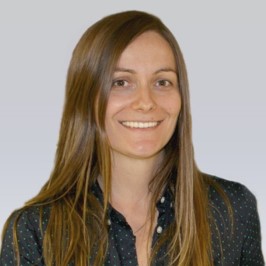
The professors have has initiated a pilot in the courses CHEM 2020 (Introductory Organic Chemistry I) and CHEM 3001 (Experimental Chemistry II) this term. “We hope to gather valuable information from the initial student experience and feedback collected from Adobe Captivate activities and linked self-reflection surveys,” Mirkovic said. During the summer, they will reflect on the pilot’s successes and explore the reusability of the created templates.
They are optimistic that the new software will contribute to student engagement, leading to increased student motivation and greater retention.
Meanwhile, the accessibility team is moving forward with its own initiative to improve – in a different way – the accessibility of biology, chemistry and physics labs for students in the Faculty.
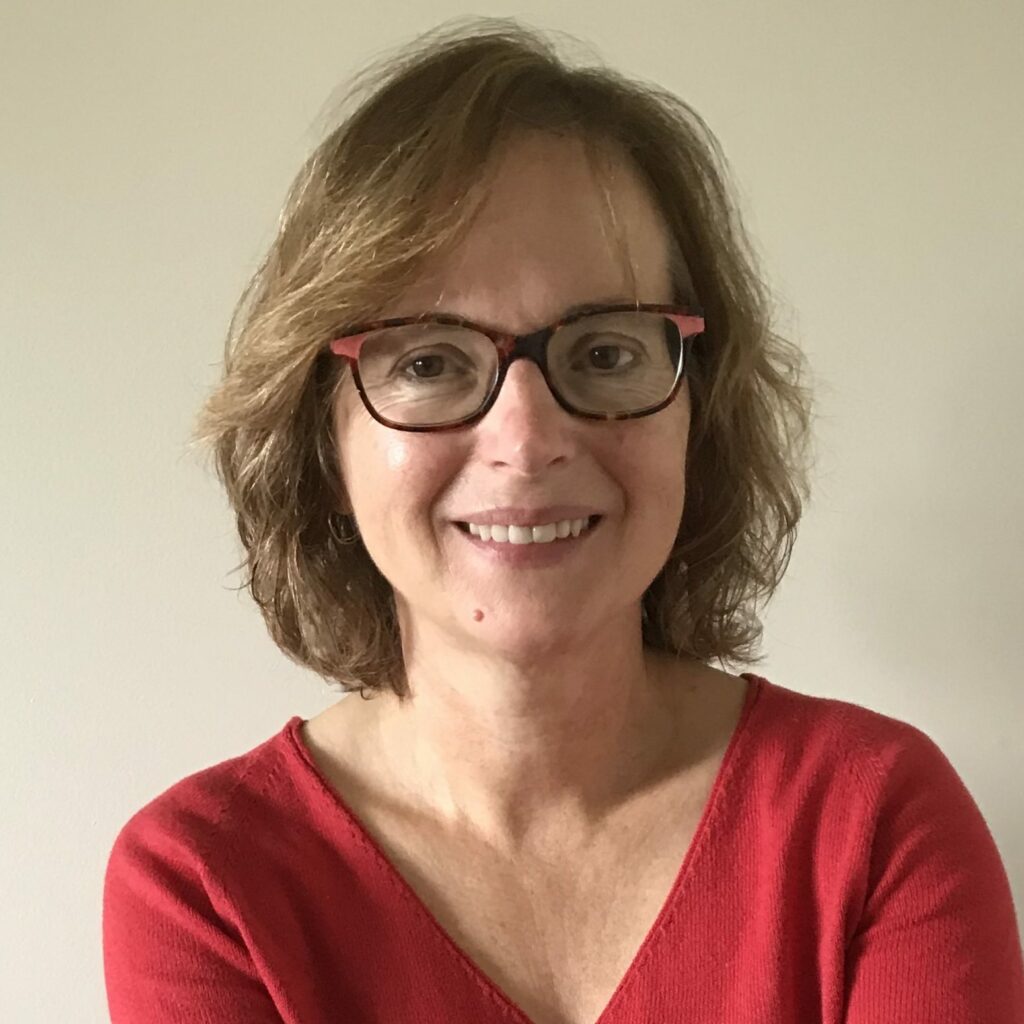
“Paula and I have directed labs, and something we come up against regularly is accommodation,” said Kelly, the project lead and the Pedagogical Innovation Chair, Science Education. “Student Accessibility Services typically addresses lectures, but has limited expertise to support providing clear accommodations for labs.”
Added Wilson: “Students with accessibility issues have the burden of negotiating with their professors for every lab, and it’s exhausting. Also, even if professors are eager to assist, they aren’t experts in accommodation.
“In addition, by the time faculty members get a letter about accommodating a student, it may be the second or third week of the term, which leaves no time for finding and arranging creative solutions.”
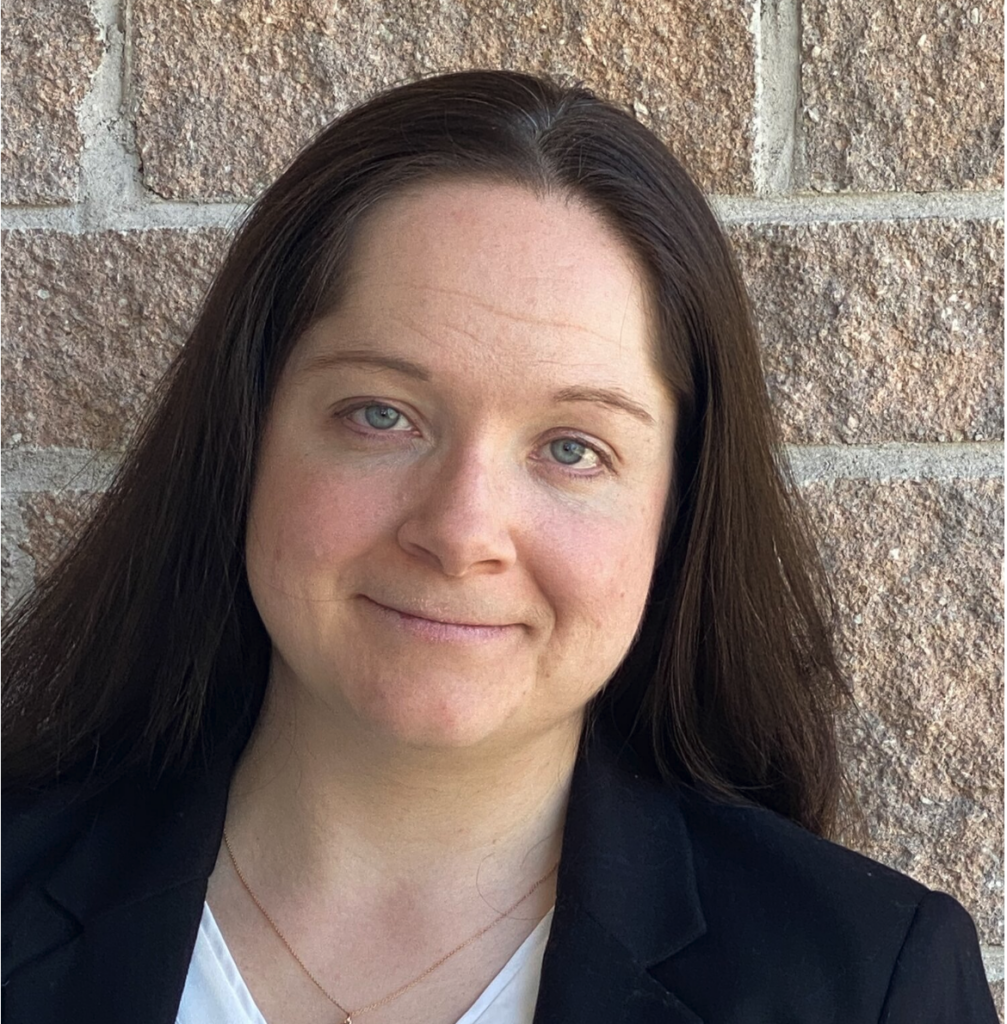
The group plans to survey Faculty of Science students and faculty to learn more about needs and accommodations that work. Latour and Nelson developed a checklist of barriers to accessibility in labs and then, with Nahornick, toured first-year science laboratories with the technicians who run the labs. They looked for barriers and what was missing to make accommodation easier.
“There were a lot of things that were quick fixes, so Ashley emailed the lab managers to suggest changes to make before the start of the term,” said Kelly. “These included the readability of signage, repairs to broken automatic doors, among other things.”
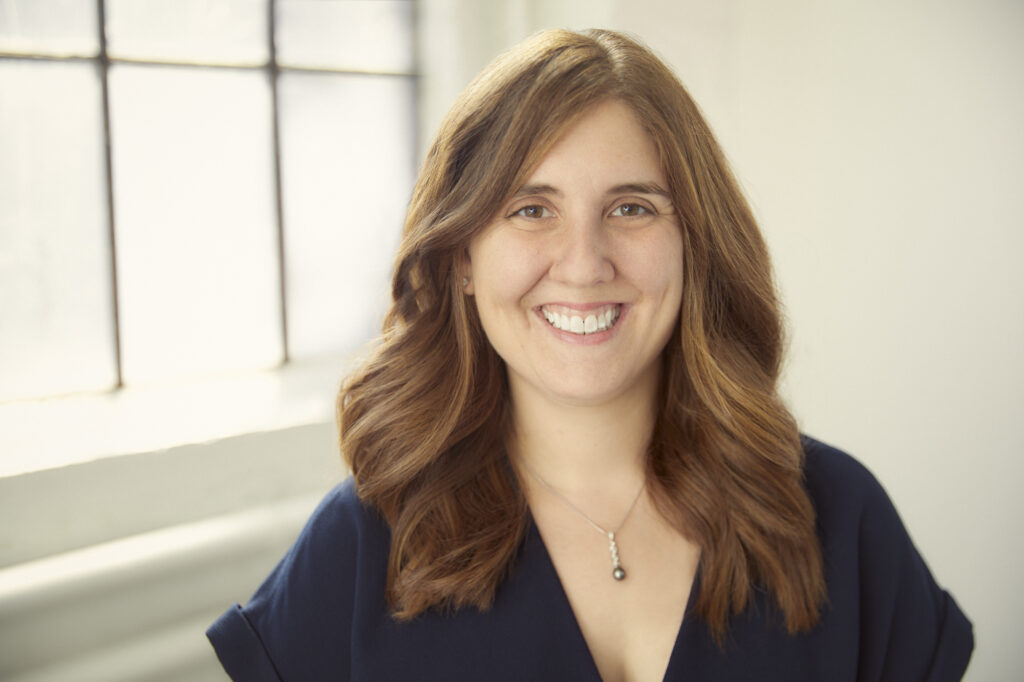
The team also brought in Pamela Millett, an audiologist from the Faculty of Education, to determine what the sound issues might be for those with hearing concerns.
“There is a lot of ambient sound in labs, from fans and other equipment, that make it hard for students to hear instructions,” said Nahornick. “Repairing or using their microphones is an easy fix.”
The next step will be to create professional development support for instructors, technicians and teaching assistants, so they understand how to best support accessibility in labs.
Wilson said they would also like to prepare a series of recommendations for the Faculty. “Some issues may require infrastructure changes that will require additional funding. We want to take away the pressure on instructors to handle this on their own by making changes where we can and sharing best practices,” she explained. “Our aim is to make it easier for all students to have valuable lab experiences that meet course outcomes.”
Kelly added, “If we have a clear understanding in advance about what is needed, that’s a big step. Some things must be personalized, but there are some general things we can implement for our students. Students with disabilities are often driven away from science in high school because of barriers, and we don’t want to be part of that cycle. We want to enable people.
“For a lot of students, their first experience in a lab turns them onto science. We’ll lose talent if they don’t feel as if they can function in this setting.”



